
Discover the average hot tub maintenance cost, what impacts pricing, and how to save money. Get expert tips to keep your hot tub running smoothly all year.
Let jet streams wash away your worries


The words “spa,” “hot tub,” and “Jacuzzi” are often used interchangeably, but all have different meanings.
Jacuzzi is a trademarked hot tub brand.
There are many brands of hot tubs to choose from.
Any kind of water therapy or health treatment structure can be called a spa.
Most hot tubs and Jacuzzis have the same amenities, but both can have unique customizations.
Hot tubs have been around for decades and are often looked at as a luxurious purchase. While they can certainly be expensive, the benefits they offer make them worth the price tag in many homeowners’ minds.
But is your hot tub actually a hot tub, or is it really a Jacuzzi? Or is it a spa? “Hot tub” is a generic term applied to any tub filled with heated water, but the reality is that hot tubs, Jacuzzis, and spas are all individual products with overlapping qualities.
To make matters more confusing, all three fall into a Venn Diagram of sorts, since spas are technically hot tubs and Jacuzzis are essentially spas—but not every hot tub and spa can be categorized as a Jacuzzi. Differentiating among the three can be a puzzling endeavor, making it more difficult to decide which option is best for you.
Here we will break down the differences between Jacuzzis, hot tubs, and spas, so you can make an informed decision and get maximum relaxation.

Although the word is often used as a blanket term, Jacuzzi is a trademarked brand name for hot tubs. After a relative developed arthritis in the late 1950s, a man named Roy Jacuzzi created and sold the first self-contained whirlpool bath in 1968. The Jacuzzi company went on to sell other trademarked items, including jetted tubs, wellness products, and swim spas.
| Hot Tub | Jacuzzi | Spa |
|---|---|---|
| General term for a tub of heated water | Trademarked brand name | General term for water therapy devices |
| Usually installed above ground and outdoors | Located above ground or in-ground, indoors or out | Located above ground or in-ground, indoors or out |
| Large enough for more than one person | Large enough for one or more people | Large enough for more than one person |
| Used for relaxation, recreation, and hydrotherapy | Used for relaxation and hydrotherapy | Used for relaxation, recreation, hydrotherapy, and health treatments |
Takeaway: Jacuzzi is a specific brand of hot tub, and not all hot tubs are Jacuzzis.

Though the definition of a hot tub is a large tub of hot water, from when they were first introduced on the scene until today, hot tubs have evolved far past being simple vessels for holding heated water. The word “hot tub” is used broadly to refer to all types of tubs, regardless of their features. Most hot tubs come equipped with water jets and enough seating to accommodate multiple people. Hot tubs can be used for leisure or hydrotherapy, and while they are typically above ground, a hot tub could also be incorporated into an in-ground pool.
Takeaway: Hot tubs are used for socialization, as well as to relieve aches and pains. There are a multitude of brands and varieties on the market to purchase.
| Pros | Cons |
|---|---|
| Useful for recreation, relaxation, and hydrotherapy | Can be expensive to install and use |
| Fit one or more people | Require a lot of maintenance and cleaning |
| Many brands, sizes, and customizations | Can use a lot of energy |
Hot tub benefits are as numerous as their uses. Many people use hot tubs for recreation and fun, along with relaxation and hydrotherapy. While smaller individual tubs exist that are built to fit only one person, most are made to accommodate two or more people, including extra-large hot tubs that can fit a whole party. Hot tubs, whether or not they are Jacuzzi brand, are available in a wide variety of sizes with hundreds of customization options, including lighting, water features, specialized jets, entertainment centers, and smart features.
While hot tubs have a lot of pros, they also come with a few cons. The major downside is that hot tub costs can be high, especially if you choose a brand-name or luxury hot tub and if you install your new hot tub in-ground or inside your home, rather than above ground outdoors. They also require a lot of maintenance; cleaning and chemical monitoring can be a hassle for some homeowners.
Hot tubs can also waste energy. To prevent high energy bills, consider eco-friendly models or solar heaters, use insulating covers, and keep them turned down when you are not using them.

The word “spa” is often used to describe hot tubs and Jacuzzis, but is really intended as a catch-all phrase for different forms of water therapy. At spa resorts, you will frequently find various types of hydrotherapy, with treatments that include mineral-rich water or hot springs, saunas, and steam rooms. Hotels and all-inclusive resorts also boast in-ground and indoor spas to increase yearly visitors. Spas tend to have strong jets that mix air into the water to give a more intense massaging feel.
Takeaway: “Spa” as a term is used broadly, but in the United States, it typically refers to the water therapy provided by a tub with strong water jets that create a massaging effect.
| Pros | Cons |
|---|---|
| Wide variety of water therapy options | It can be difficult to choose the right spa for your needs. |
| Options can be installed inside, outside, in-ground, and above ground. | In-ground and inside spas can be expensive. |
| Can hold one or more people | Users can experience adverse health effects. |
Because “spa” is a catch-all term that encompasses a wide variety of water therapy tools and equipment, there is a good chance that you can find one that matches your needs. Whether you are looking for a jetted tub, a wet sauna, or an immersion hydrotherapy spa, you will find many options. You can choose among different types and installation locations, from standalone, portable, and in-ground, to inside or outside models. Sizes also vary, from individual spas to large spas that hold several people at once.
Not all types of spa are a good fit for every home or individual. While spa uses include relaxation, recreation, hydrotherapy, and health treatments, not all spas do all things, so you will want to tailor your choice to your needs. They can also be expensive, with luxury models and in-ground and indoors spas usually costing more than traditional spas or those installed above ground outside. One of the most overlooked cons is related, ironically, to how good spa use feels; overuse can contribute to dizziness, low blood pressure, and additional risks for children and pregnant women.
Aside from Jacuzzi being a trademarked type of hot tub, many hot tubs and Jacuzzis have similar features, such as massage jets and LED lights. The primary difference between the two is that hot tubs can be manufactured and sold by an array of different companies; they come in different sizes and shapes and are typically more energy efficient and affordable than brand-name Jacuzzis.
Similarly, spas share features with Jacuzzis and other hot tubs. Most use hot water and jetted streams to provide therapeutic relief and health treatments. While they can be very different, as is the case with steam rooms or saunas, most types of spa fit the mold of what consumers refer to as hot tubs.
Whether you ultimately choose a hot tub, Jacuzzi, or spa, you will need to know the differences—and pros and cons of each—in order to make the best decision.
Start by considering why you want a hot tub or spa, noting any specific needs or wants you may have. For example, decide whether you want a tub with jets, prefer a name-brand tub, how many people you wish to accommodate, where you want to install it, and whether you want a luxury experience with massage features and entertainment options like speakers and lighting.
Then compare your needs with the details of each option to see which best aligns with your priorities. Below, we outline cost factors and reasons you should consider each type of therapeutic hot water tub.
The cost of your new hot tub, Jacuzzi, or spa will vary greatly depending on the type, size, model, and amenities you choose. In general, you can expect to pay between $3,000 and $7,000 for a typical hot tub, with in-ground hot tub costs at the high end of that range. Since Jacuzzi tubs are a well-known name brand, you may pay more for these products.
The cost can rise if you choose any of the following:
Luxury models
Salt water tubs
Custom size and materials
Add-on features such as speakers, lights, additional jets, water features, visual entertainment centers, massage jets, touchscreen control panels, and more
Installing a hot tub, Jacuzzi, or spa in-ground or in your home rather than above ground
In contrast, if you are looking for luxury at a lower cost, you may want to choose a standalone or portable hot tub or spa, as these are usually more affordable than in-ground models. To learn more about your options, talk with a local hot tub installer near you for personal recommendations on which type of hot tub or spa is best for you.
Much like all other hot tubs, Jacuzzis offer mental and physical health benefits that make them a great investment. Because there are so many types of hot tubs available for purchase, a main reason to opt for a Jacuzzi is the brand assurance. As a company, Jacuzzi has been around for decades, making it a recognizable name in the industry. If you prefer to buy products from tried-and-true reputable companies, buying a Jacuzzi product may be the best option for you.
Hot tubs are also relatively easy to maintain due to the filtration systems built into them, but keep in mind you will still need to treat them with chemicals and clean the filtration system periodically. Taking good care of your hot tub will increase its longevity and ensure it is safe to use. You will also have more options to choose from when buying a non-Jacuzzi hot tub because of the number of companies that offer them. This in turn may make it easier to find a tub with everything you are looking for that also falls in your price range.
When choosing between a hot tub or spa, a deciding factor will likely be intent. Ask yourself how you plan to use it. Are you looking to gain health benefits? If the answer to that question is yes, a spa may be the best option for the money you will spend. Another reason to choose a spa over a hot tub or Jacuzzi is if you specifically want a more intense massage from your water jet.
Along with hot tubs, spas, and Jacuzzis, there are other water therapy tubs, devices, and types of pools you may want to consider. While they may not be as common, these may be good options for your needs, especially if a traditional hot tub or spa is not exactly what you are looking for.
Jetted tubs: Jetted tubs are bathtubs that have hydrotherapy jets positioned inside. These jets attach to circulation pumps and often use added air for a more powerful stream of water to increase therapeutic benefits.
Whirlpool baths: Often in the form of jetted tubs, whirlpool baths are any kind of therapeutic bathtub that enables the user to relax or get treatment from whirling or jetted currents of hot water.
Therapy tubs: Therapy tubs are usually made of stainless steel and are used for hot and cold water therapy. Frequently used in locker rooms, athletic facilities, physical therapy facilities, nursing facilities, and other professional settings, they are also available for home use. Therapy tubs are most often filled with hot water for loosening muscles or with ice water to treat injuries. They can be simple tubs or may include a circulation pump and jets and electric heaters.
Therapy pools: Like therapy tubs, therapy pools are frequently used by professionals providing treatment to patients; however, they can be used in home settings. Most therapy pools are larger than therapy tubs and are meant to be used for neck-deep, standing hydrotherapy or water-based low-impact exercise.
Soaking tubs: If you like soaking in a bathtub and want an even better, more relaxing experience, consider a soaking tub. These are larger, deeper bathtubs that allow users to submerge fully. Most look like traditional bathtubs, but you can buy them as walk-in tubs that are taller and allow you to sit up while relaxing.
Spools: Spools are a cross between a spa and an in-ground pool. Measuring 10 feet by six feet, or up to 15 feet by eight feet, they are large enough to swim in and they contain whirlpool jets and other spa features, giving you the best of both worlds.
From average costs to expert advice, get all the answers you need to get your job done.

Discover the average hot tub maintenance cost, what impacts pricing, and how to save money. Get expert tips to keep your hot tub running smoothly all year.
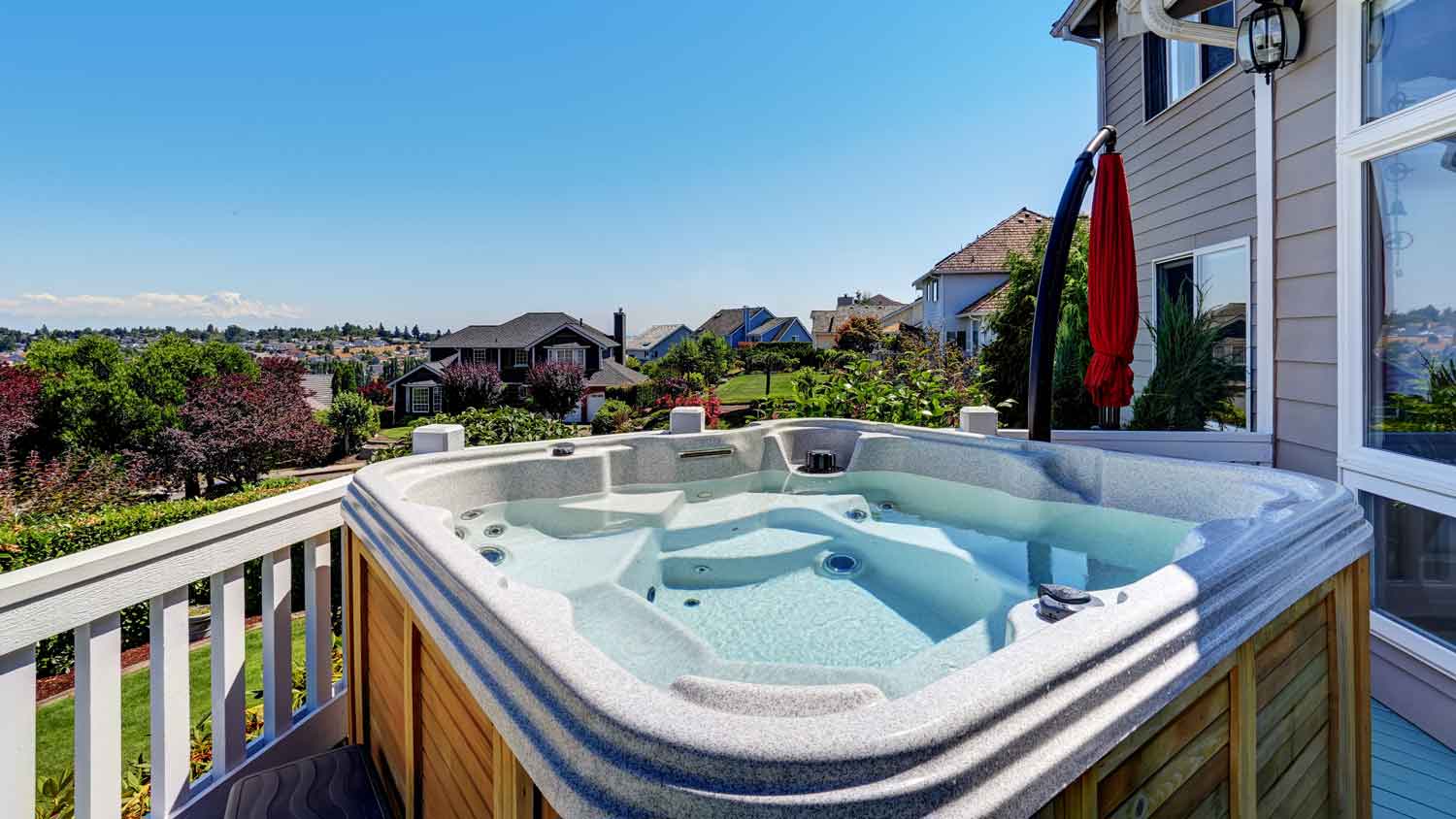
Discover how much a saltwater hot tub costs on average, including installation and ongoing expenses, plus tips to save money and compare DIY vs. pro options.
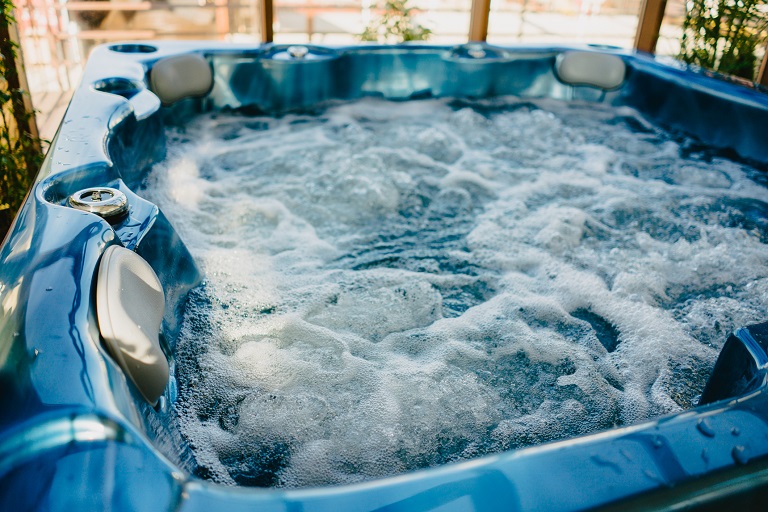
Wondering how much it costs to run a hot tub? Discover average monthly and yearly costs, key factors, and tips to keep your hot tub expenses in check.
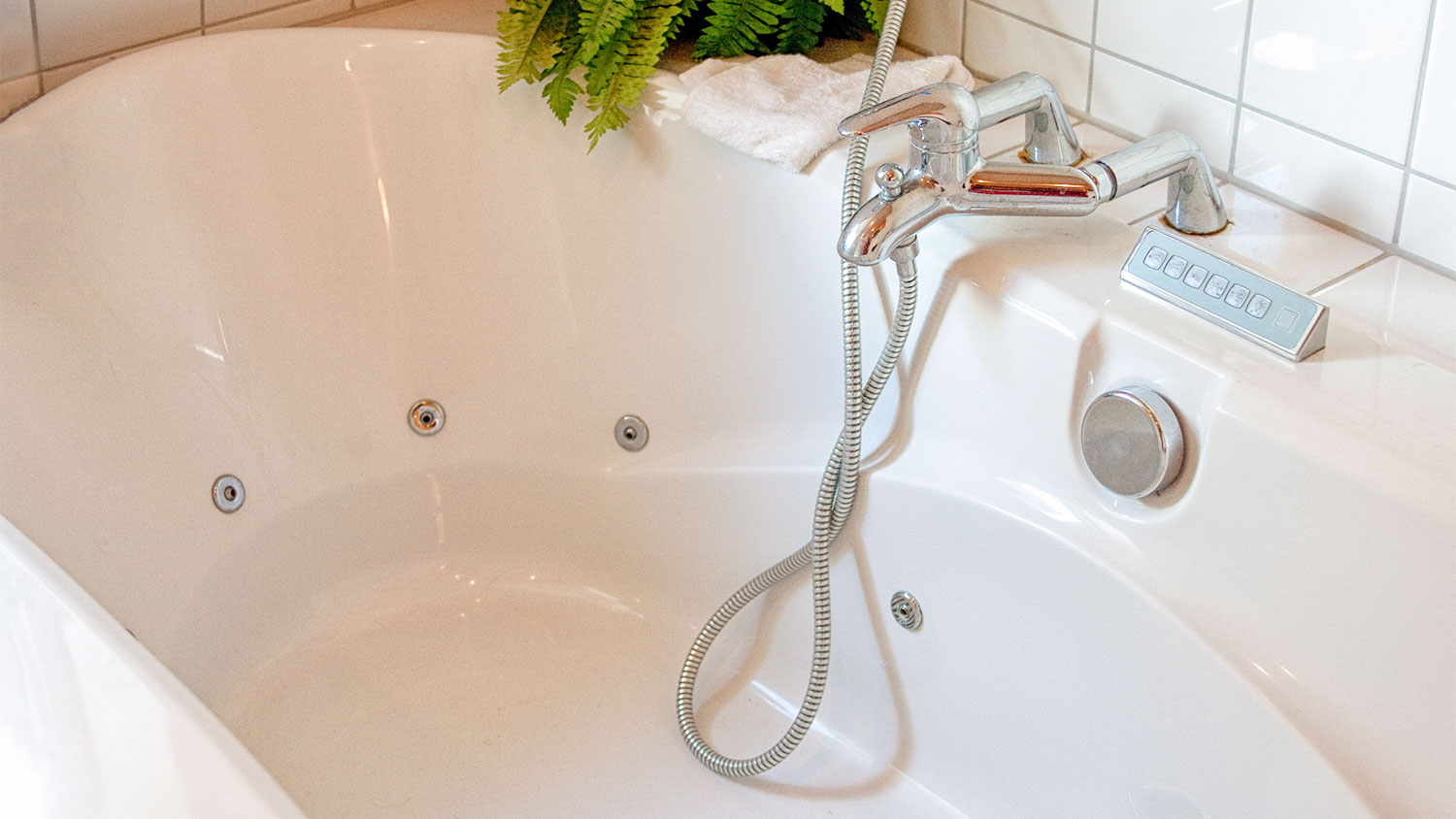
Discover the cost of whirlpool tub installation, including average prices, key cost factors, and tips to help homeowners budget for their project.
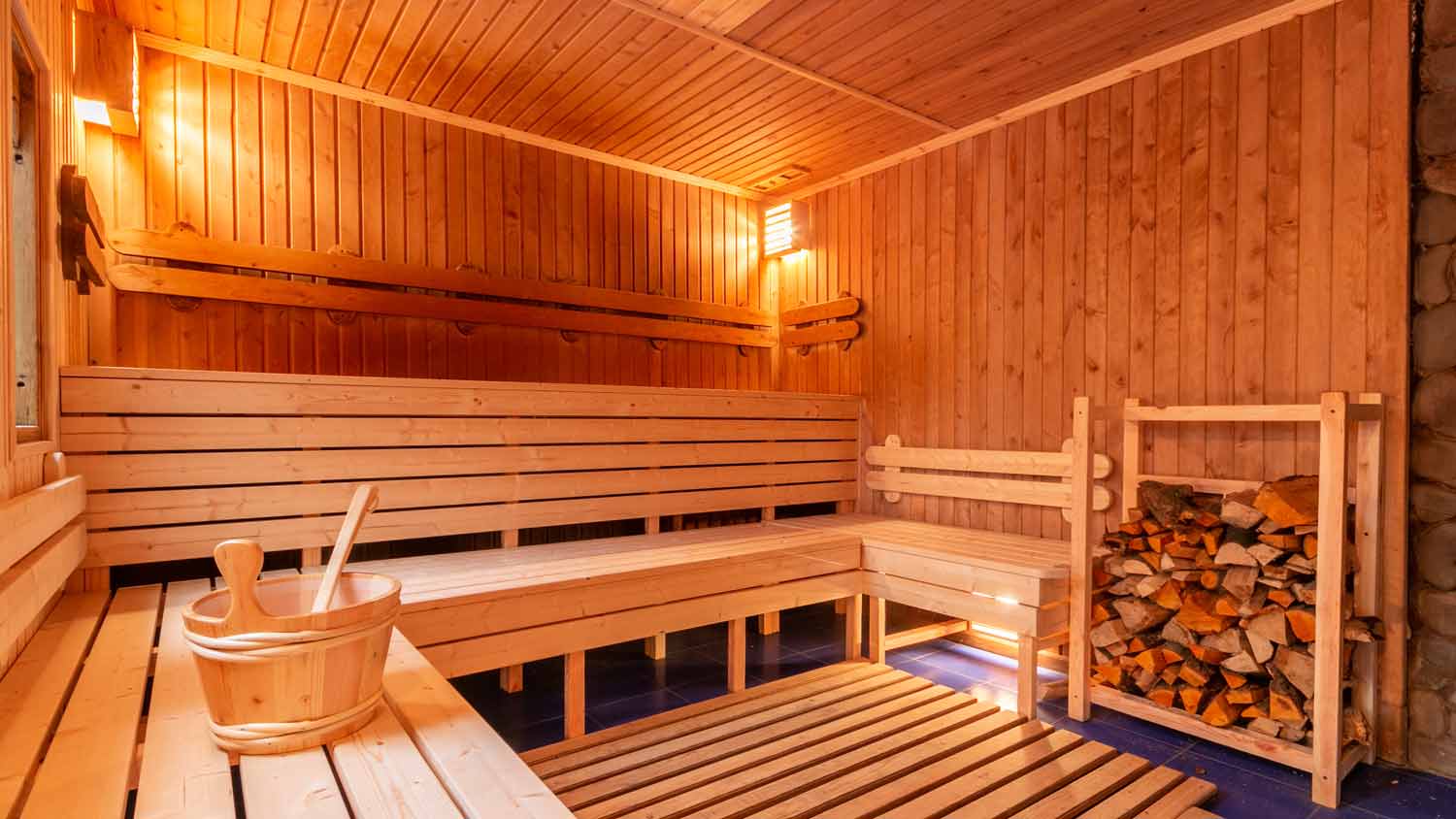
Discover sauna maintenance cost estimates, including average prices, key cost factors, and tips to help you budget for a clean, efficient sauna.
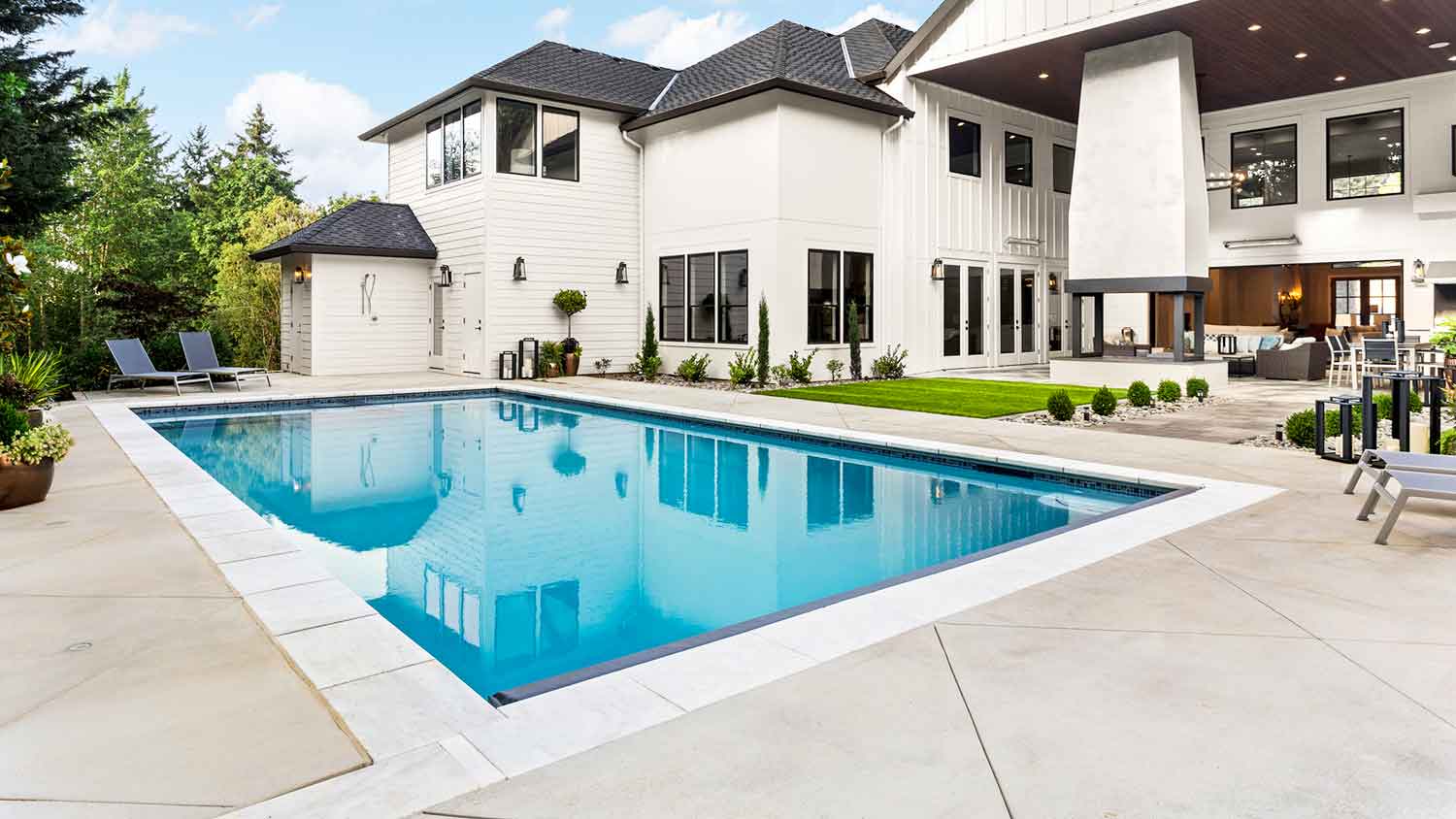
Why is my pool foamy? This guide dives into four of the most common causes of a foam-filled pool, including low calcium hardness and algaecide use.